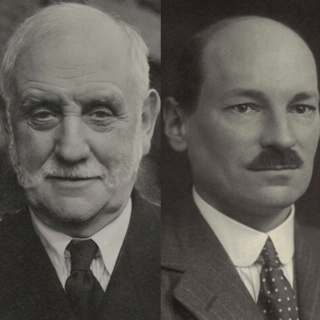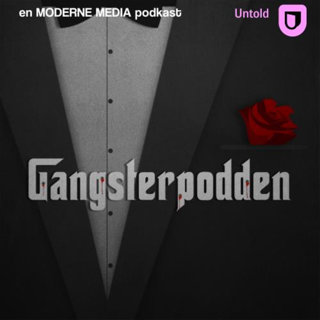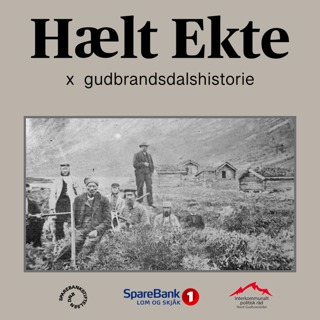
35. Bloodless? Did I say bloodless?
That’s it: we’ve reached the great and dreadful moment of the Battle of the Boyne, an event that casts its shadow right down to the present day. Each year – on an oddly chosen anniversary date – Orangemen, called after William of Orange, march in Northern Ireland to remind everyone of their triumph over Catholic forces. Then the episode switches its attention to Scotland, and events just as iconic, occurring in the picturesque valley of Glencoe. The Boyne and Glencoe: they demonstrate just how little the word ‘bloodless’ applies to the Glorious Revolution. And in what a limited sense it was even glorious. Illustration: Jan van Huchtenburgh: Battle of the Boyne. Public domain, original in the Rijksmuseum, Amsterdam. This work is in the public domain in the United States because it was published (or registered with the U.S. Copyright Office) before January 1, 1926. Music: Bach Partita #2c by J Bu licensed under an Attribution-NonCommercial-No Derivatives (aka Music Sharing) 3.0 International License
8 Mai 202110min

34. Another theatre in a wider war
It's the run up to the Battle of the Boyne. So we're chatting about the many motivations for William III's invasion of England. Yes, the aims of the Glorious Revolution, protecting or simply implementing a particular view of a certain number of English liberties, mattered. But there was also the much more personal objective of protecting his wife's claim to the English throne, which he would share with her. And then, as a Dutchman, he wanted to get on with fighting Holland's war against France. For that, English neutrality would be a great improvement over its potential involvement on Louis XIV's side; even better, having it join with Holland would be a huge boost. And if he were king, couldn't he make sure that happened? A lot was at stake when the sides met at the Boyne. But it wasn't just the fate of the English and Scottish crowns, or of Catholicism in Britain and Ireland. It was also the hopes of defeating France in a much wider European war. That made the Irish campaign one theatre in that war. Illustration: King Louis XIV of France, ‘Louis the Great’, the ‘Sun King’. The figure dominating the European scene and threatening the other powers. National Portrait Gallery, Smithsonian Institution; purchased through a generous contribution by Joseph Verner Reed to the Victor Proetz Memorial Fund Music: Bach Partita #2c by J Bu licensed under an Attribution-Non Commercial-No Derivatives (aka Music Sharing) 3.0 International License
3 Mai 202111min

33. Two for the price of one
The Glorious Revolution led to England having two reigning monarchs for the price of just one: William III and Mary II, or Williamandmary, as we like to think of them. It started with a Bill of Rights, which no one signed and never became law, but it was destined to have a great role in the future. Curious, isn't it, how something with no immediate impact can turn out to be historic? Some bits of it led to legislation, including the Settlement Act, which legitimised the new monarchs' rule, a pretty remarkable step, seeing as it made the sovereign's power dependent on parliamentary authority. Above all, the new approach firmly rooted the notion that the monarch needs the consent of parliament to some of his (or her) actions. That was especially true of the more expensive ones, since it and it alone would control taxation in the future. All this was hardly the beginning of democracy, but it did mark the end of arbitrary royal power. A pretty significant development, given how absolutist other regimes were, notably in France, Europe's leading power at the time. Illustration: King William III; Queen Mary II by Jakob van der Schley, after Hubert-François Gravelot (né Bourguignon) National Portrait Gallery D10672 Music: Bach Partita #2c by J Bu licensed under an Attribution-NonCommercial-No Derivatives (aka Music Sharing) 3.0 International License
28 Apr 202111min

32. Glorious Revolution
Was it glorious? Was it even a revolution? The Glorious Revolution brought to an end the short and little lamented - indeed, lamentable - reign of James II of England, James VII of Scotland, and with it, the Stuart dynasty on the throne of England. But there was little fighting, particularly as James behaved uncharacteristically and fled abroad, after offering little resistance. And while there was certainly significant change, in that William III and Mary II replaced the king, and did so on the invitation of parliament, not by divine right - a revolution in seventeenth-century terms, as the wheel of fortune revolved - it was hardly revolutionary in our understanding of the word. Little glory, then, and barely a revolution. But all the same, a highly significant event, as we shall see. Illustration: JMW Turner, Prince of Orange landing at Brixham Indianapolis Museum of Art Music: Bach Partita #2c by J Bu licensed under an Attribution-NonCommercial-No Derivatives (aka Music Sharing) 3.0 International License
23 Apr 202110min

31. The Stuarts: plumbing the depths
We stand on the brink of saying goodbye to the Stuart kings, at last (not, alas, to the Stuarts though: they'll be back a couple more times to haunt us). The history of England saved the worst to last: James II, or James VII in Scotland, was the bottom of the barrel, the worst of the Stuarts, the man whose only achievement was to help shorten his reign by his sheer ineptitude. We'll find out how, we'll find out who was standing in the wings ready to take over, and how he needed to be invited before he'd come to the party. Illustration: Anne Hyde, the king's wife, with James II. By Sir Peter Lely National Portrait Gallery 5077 Music: Bach Partita #2c by J Bu licensed under an Attribution-NonCommercial-No Derivatives (aka Music Sharing) 3.0 International License
18 Apr 202110min

30. Time to party
In the course of Charles II's reign, we saw governments fall and an opposition beginning to emerge. The result was the formation of two distinct groups, the Whigs and Tories, the former looking for limited royal power, the other more strongly royalist. Neither was keen on Catholics, but the Whigs were rather more intent on protecting the country against what they saw as Papist plotting to overthrow the Protestant regime. It was in its early days, and it wasn't yet the party political system we know but perhaps don't love, but this was the beginning of its emergence. Illustration: A Solemn Mock Procession of the Pope, an engraving based on Stephen College, showing an event organised by Whigs in 1680, with effigies of the Pope, Cardinals, and other Catholic ecclesiastics, carried through the streets of London to be burned on bonfires. Music: Bach Partita #2c by J Bu licensed under an Attribution-NonCommercial-No Derivatives (aka Music Sharing) 3.0 International License
13 Apr 202114min

29. More gilded than golden?
When we last took a look at the so-called golden age of Charles II, we talked about the persecution of Catholics and, in particular, the witch hunt launched against them during the Popish Plot craze launched by Titus Oates's fabrications. But Catholics weren't alone in being given a lousy time. Puritans, the more fundamentalists of Protestants, were also targets. They were seen as the main architects of the English republic that had just ended. They were also seen as dangerously unorthodox, when conformity was viewed as the right way to go. This was the last time, indeed, when anyone made the attempt to impose a single faith on Britain. So Episcopalians, the trend within the Church of England that was as close to Catholicism as you could get without giving up on Protestantism altogether, also persecuted Dissenters and Non-Conformist Protestants. And it wasn't a nice sight either... So this was another group of people for whom the age wasn't terribly golden. Ultimately, that was something that also revealed the relative loss of power of the king, and the emergence, notably in parliament, of tendencies of opinion opposed to each other, for or against the king. Religion and politics melded. And, for our next episode, we're going to see how that led to the beginnings of the party system. Illustration: The martyrdom by drowning of Margaret Wilson, a Scots Presbyterian who refused to bow to Episcopalian authority. Engraving from a nineteenth-century drawing by J E Millais. Music: Bach Partita #2c by J Bu licensed under an Attribution-NonCommercial-No Derivatives (aka Music Sharing) 3.0 International License
8 Apr 202111min

28. The golden age loses its sheen
Was that golden age, following the restoration of the monarchy in England, really that golden? This episode looks at how it lost its sheen, particularly when the champion fabricator or fake news and false denunciations, Titus Oates, came along and plunged the country into the hysteria of the Popish Plot. That was like so many other witch hunts, even the McCarthy anti-Communist hunt in the 1950s. And, like most conspiracy theories, based on pure fiction. Or, rather, impure fiction. Illustration: Titus Oates, engraving after and unknown artist National Portrait Gallery D16604 Music: Bach Partita #2c by J Bu licensed under an Attribution-NonCommercial-No Derivatives (aka Music Sharing) 3.0 International License
3 Apr 202114min





















